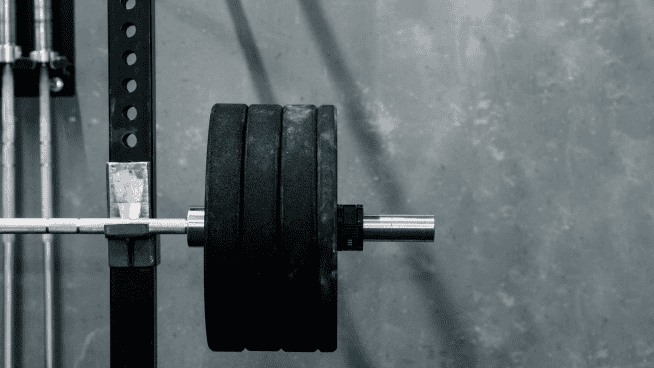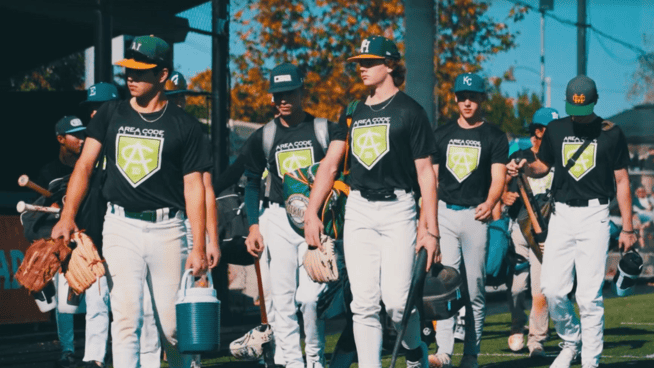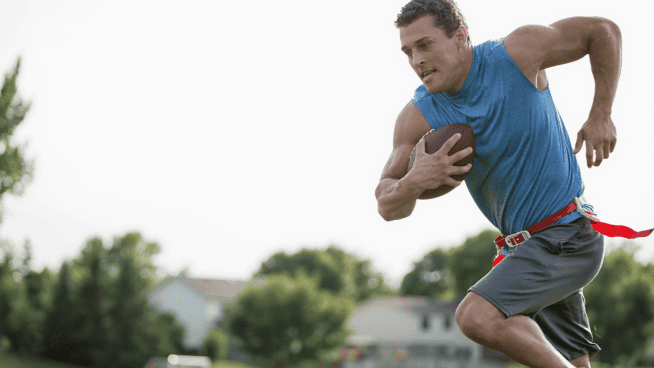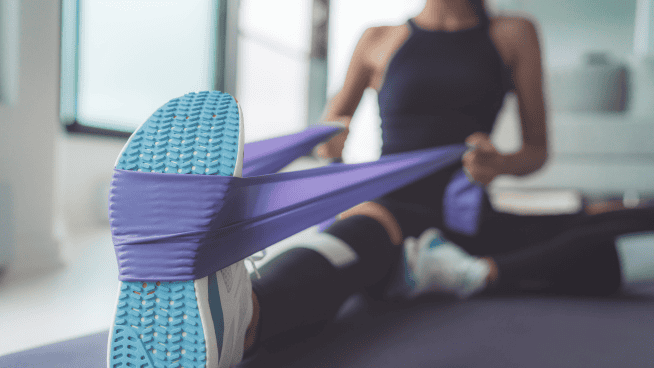I am a firm believer that if you want to make real, impactful changes to your health, you need some guidance through the process. The majority of successful individuals in sports, or any industry, have a team of coaches, mentors and personnel around them to help them get better.
Trying to do everything yourself with no help from qualified experts is a recipe for disaster. Sure, some things need to be learned the hard way, but why not learn things the smart way every chance you get? This is especially true if you’re a training client.
The day I decided I wanted to be a personal trainer, I went out and hired a personal trainer. I told him what I wanted to do. I asked questions. I asked for help and sought advice. I took notes. I immersed myself, as a consumer, in the field I wanted to be in. I had already graduated from college with an unrelated degree, got married, built a home, etc. Going back to school wasn’t an option. An unpaid internship wasn’t an option. So I became a consumer of the service that I wanted to provide for a living and used that experience as a foundation for what I needed to learn, improve and experience to get to my end goal.
Fast forward to now—the plan has worked out nicely so far! Looking back, hiring a trainer was one of the most beneficial experiences in the entire process, because I knew how it felt to be a consumer of my own product. It is extremely important to your career that you put yourself in the shoes of your consumer from time to time and evaluate the value of what you offer.
With that in mind, I decided to round up some of the most elite, highly respected and educated coaches and trainers in the world and ask them to put themselves in the mindset of a client. I asked each coach, “If you were a client already working with a trainer, or looking to hire one, what is one vital question that you would ask them?”
If you are looking to hire a fitness professional or consultant of any kind, these responses will be massively beneficial in helping you navigate through the phonies and find a great match for yourself. Use these eleven questions as guidelines for what to look for in your hiring process, or for a way to make sure your current trainer is truly right for you.
1. What is this exercise doing for me?
If a trainer can’t quickly and easily explain why an exercise is in a program, then it shouldn’t be there. There needs to be a “why” for everything. This allows us to justify the time, energy expenditure and assumed risks relative to the proposed benefits.
— Eric Cressey, President, Cressey Sports Performance
2. Why did you choose training as a career path?
This is critical to know because it will give you an idea of whether the person is truly passionate about their craft and improving others’ lives.
If they say they wanted to wear sweatpants to work or be able to work out all the time, run for the hills.
However, if they have an authentic story—like overcoming an injury themselves, or transforming their own health, or turning their life around—then you can get a glimpse of how they want to help their clients reach similar milestones.
— Erica Suter, Strength Coach, Owner, Energize Fitness
3. How will you help me reach my goals?
I would probably go with some variation of the following:
-
What kind of movement screen do we do and how do we use it to create specific workouts?
-
What is your periodization model for the period of time we’ll be working together?
-
How will we measure progress?
-
How long do you expect it will take me to achieve my goals?
When I did personal training before I was a full time strength coach for team sports, I always told my clients that I refused to have them as clients for more than 6 months. I wanted my clients to own the information and to have a firm grasp of their wellness.
I didn’t want to be holding their hand forever. I saw (and still see) my job as that of a teacher. I want my students/clients/athletes to know what I know and be able to have the physical and mental strength to do it on their own eventually. Empowerment, not enslavement!
— Rachel Balkovec, Houston Astros Latin American Strength & Conditioning Coordinator
4. Why are we doing this over and over again?
Honestly, I think the answer to this question is that clients should ask, “Why are we doing this over and over,” regarding the things the trainer is having them do during the session.
If the trainer can’t give you a thorough answer that really makes sense immediately, then that person is clueless.
In my opinion, a good answer is one where the trainer needs to be cut off by the client because they’re so passionate about the answer to that question that they almost have an out of body experience and they appear to want to tell you about it all day. That’s passion, and passion along with relentless daily work are the two ingredients for high achievement and excellence in any field.
— Pat Davidson, World Class Strength Coach & Creator, MASS Training System
5. Why should I train with you?
If I were to put myself in the shoes of a client, the question I would ask a potential trainer would be, “Why should I train with you?” From a client’s perspective, I’d want to know what makes that particular trainer different, how confident are they in what they have to offer and why they are unique?
— Todd Durkin, Founder, Fitness Quest 10
6. Why am I doing this?
Knowing why you are doing something is critical to you mentally and physically buying in. If you know why you are doing something, you trust both the exercise and the person who gave it to you.
You will also be more likely to do this on your own, away from the trainer/coach, which will help make you better in the long run. All of this leads to a commitment that breeds success.
— Cory Walts, Head Strength & Conditioning Coach, Haverford College
7. What are your references?
In addition to observing a prospective trainer’s level of fitness, professionalism and communication skills, I recommend asking for three references from current or past clients who have the same or similar goals as yours.
But don’t stop there—call all three and rather than simply asking, “How did you like working with (so and so),” ask, “How much progress did you make toward your goals?” This is the most meaningful metric.
Though it’s likely that these references will be hand-picked, it’s a good start if a prospective trainer can at least furnish references.
— Charles Staley, Elite Strength Coach & Powerlifter, Target Focus Fitness
8. How do you specialize your programming for female clients?
I would absolutely make a point of asking the trainer what their philosophy is for training their female clients, and for them to compare it to how they train their male clients.
Unfortunately, in the fitness industry and society in general, women are often told or shown that they should make themselves a lesser version of their current self and should ”diet,” ”shrink,” and ”tone,” and should do everything in their power to avoid getting ”bulky.”
Unfortunately, many fitness professionals have bought into this insulting mentality and train their female clients like they are delicate flowers, and forgo strength training that will actually lead them to their goals, and instead have them focus on cardio, or weight training with extremely high reps and little to no resistance at all.
Not to say that all women feel this way, but many women actually want to get much stronger, improve their athleticism, add muscle, and feel confident and empowered. So I would absolutely make a point of asking this question.
— Meghan Callaway, Strength Coach, Meghan Callaway Fitness
9. How do you track progress?
With so many internet fitness gurus making hyperbolic claims, it is important for metrics to be in place to determine that they actually deliver on what they say they will do. Actual results depend on the athlete doing the work; but provided they are doing their part, they should see results that were claimed.
— Ron McKeefery, Vice President of Performance and Education, PLAE
10. What are your certifications?
If the individual is not certified through a major certifying body, there is no guarantee that he or she has received a comprehensive, evidence-based education. Or, that he or she had to show a minimum level of comprehension of the certifying material via testing or an exam.
If the individual is not NASM-, NSCA-, ACSM- or ACE-certified I would think twice before hiring them.
Also, “What and when was the last continuing education course you took?”
This question may highlight a larger knowledge base, but most importantly, it shows continued interest in learning and growth. A trainer who has not taken a continuing education workshop in 2 years is not someone who will take the extra steps necessary to design and coach a great routine.
— Brent Brookbush, Founder & President, Brookbush Institute of Human Movement Science
11. What is the purpose of each exercise and why are we doing it?
There are three reasons why this question is so important.
First, when a client goes out of their way to inquire further about an exercise or protocol, it shows the trainer that the client is very interested about the training they are participating in and desire a deeper understanding. This is typically a positive sign as it shows the trainer that the client is more serious about their training and are more likely to adhere to a program if in fact you provide high quality services.
Second, it gives the trainer the opportunity to further educate that client and provide more detailed scientific rational behind their training. Besides helping the client, this is one of the most beneficial things for a trainer, since it forces them to evaluate their own training and understand the concepts at a level high enough that they can clearly and thoughtfully explain it to any and all clients. Over time, this is what separates great trainers from mediocre trainers. So in essence, the client is forcing the trainer to become better at their job.
Third, further education helps the client buy into the training more, rather than mindlessly following everything the trainer tells them to do without questioning. From my experience, an educated client is much more likely to be a long-term client, because they’ve bought into what they’re doing, they believe in it, they understand it, and they have a greater level of dedication and commitment than those who have no understanding of their training regimen.
Did you just hear that? No, that wasn’t the world’s largest earthquake. That was the sound of these amazing coaches doing a collective mic drop.
READ MORE:
RECOMMENDED FOR YOU
MOST POPULAR
I am a firm believer that if you want to make real, impactful changes to your health, you need some guidance through the process. The majority of successful individuals in sports, or any industry, have a team of coaches, mentors and personnel around them to help them get better.
Trying to do everything yourself with no help from qualified experts is a recipe for disaster. Sure, some things need to be learned the hard way, but why not learn things the smart way every chance you get? This is especially true if you’re a training client.
The day I decided I wanted to be a personal trainer, I went out and hired a personal trainer. I told him what I wanted to do. I asked questions. I asked for help and sought advice. I took notes. I immersed myself, as a consumer, in the field I wanted to be in. I had already graduated from college with an unrelated degree, got married, built a home, etc. Going back to school wasn’t an option. An unpaid internship wasn’t an option. So I became a consumer of the service that I wanted to provide for a living and used that experience as a foundation for what I needed to learn, improve and experience to get to my end goal.
Fast forward to now—the plan has worked out nicely so far! Looking back, hiring a trainer was one of the most beneficial experiences in the entire process, because I knew how it felt to be a consumer of my own product. It is extremely important to your career that you put yourself in the shoes of your consumer from time to time and evaluate the value of what you offer.
With that in mind, I decided to round up some of the most elite, highly respected and educated coaches and trainers in the world and ask them to put themselves in the mindset of a client. I asked each coach, “If you were a client already working with a trainer, or looking to hire one, what is one vital question that you would ask them?”
If you are looking to hire a fitness professional or consultant of any kind, these responses will be massively beneficial in helping you navigate through the phonies and find a great match for yourself. Use these eleven questions as guidelines for what to look for in your hiring process, or for a way to make sure your current trainer is truly right for you.
1. What is this exercise doing for me?
If a trainer can’t quickly and easily explain why an exercise is in a program, then it shouldn’t be there. There needs to be a “why” for everything. This allows us to justify the time, energy expenditure and assumed risks relative to the proposed benefits.
— Eric Cressey, President, Cressey Sports Performance
2. Why did you choose training as a career path?
This is critical to know because it will give you an idea of whether the person is truly passionate about their craft and improving others’ lives.
If they say they wanted to wear sweatpants to work or be able to work out all the time, run for the hills.
However, if they have an authentic story—like overcoming an injury themselves, or transforming their own health, or turning their life around—then you can get a glimpse of how they want to help their clients reach similar milestones.
— Erica Suter, Strength Coach, Owner, Energize Fitness
3. How will you help me reach my goals?
I would probably go with some variation of the following:
-
What kind of movement screen do we do and how do we use it to create specific workouts?
-
What is your periodization model for the period of time we’ll be working together?
-
How will we measure progress?
-
How long do you expect it will take me to achieve my goals?
When I did personal training before I was a full time strength coach for team sports, I always told my clients that I refused to have them as clients for more than 6 months. I wanted my clients to own the information and to have a firm grasp of their wellness.
I didn’t want to be holding their hand forever. I saw (and still see) my job as that of a teacher. I want my students/clients/athletes to know what I know and be able to have the physical and mental strength to do it on their own eventually. Empowerment, not enslavement!
— Rachel Balkovec, Houston Astros Latin American Strength & Conditioning Coordinator
4. Why are we doing this over and over again?
Honestly, I think the answer to this question is that clients should ask, “Why are we doing this over and over,” regarding the things the trainer is having them do during the session.
If the trainer can’t give you a thorough answer that really makes sense immediately, then that person is clueless.
In my opinion, a good answer is one where the trainer needs to be cut off by the client because they’re so passionate about the answer to that question that they almost have an out of body experience and they appear to want to tell you about it all day. That’s passion, and passion along with relentless daily work are the two ingredients for high achievement and excellence in any field.
— Pat Davidson, World Class Strength Coach & Creator, MASS Training System
5. Why should I train with you?
If I were to put myself in the shoes of a client, the question I would ask a potential trainer would be, “Why should I train with you?” From a client’s perspective, I’d want to know what makes that particular trainer different, how confident are they in what they have to offer and why they are unique?
— Todd Durkin, Founder, Fitness Quest 10
6. Why am I doing this?
Knowing why you are doing something is critical to you mentally and physically buying in. If you know why you are doing something, you trust both the exercise and the person who gave it to you.
You will also be more likely to do this on your own, away from the trainer/coach, which will help make you better in the long run. All of this leads to a commitment that breeds success.
— Cory Walts, Head Strength & Conditioning Coach, Haverford College
7. What are your references?
In addition to observing a prospective trainer’s level of fitness, professionalism and communication skills, I recommend asking for three references from current or past clients who have the same or similar goals as yours.
But don’t stop there—call all three and rather than simply asking, “How did you like working with (so and so),” ask, “How much progress did you make toward your goals?” This is the most meaningful metric.
Though it’s likely that these references will be hand-picked, it’s a good start if a prospective trainer can at least furnish references.
— Charles Staley, Elite Strength Coach & Powerlifter, Target Focus Fitness
8. How do you specialize your programming for female clients?
I would absolutely make a point of asking the trainer what their philosophy is for training their female clients, and for them to compare it to how they train their male clients.
Unfortunately, in the fitness industry and society in general, women are often told or shown that they should make themselves a lesser version of their current self and should ”diet,” ”shrink,” and ”tone,” and should do everything in their power to avoid getting ”bulky.”
Unfortunately, many fitness professionals have bought into this insulting mentality and train their female clients like they are delicate flowers, and forgo strength training that will actually lead them to their goals, and instead have them focus on cardio, or weight training with extremely high reps and little to no resistance at all.
Not to say that all women feel this way, but many women actually want to get much stronger, improve their athleticism, add muscle, and feel confident and empowered. So I would absolutely make a point of asking this question.
— Meghan Callaway, Strength Coach, Meghan Callaway Fitness
9. How do you track progress?
With so many internet fitness gurus making hyperbolic claims, it is important for metrics to be in place to determine that they actually deliver on what they say they will do. Actual results depend on the athlete doing the work; but provided they are doing their part, they should see results that were claimed.
— Ron McKeefery, Vice President of Performance and Education, PLAE
10. What are your certifications?
If the individual is not certified through a major certifying body, there is no guarantee that he or she has received a comprehensive, evidence-based education. Or, that he or she had to show a minimum level of comprehension of the certifying material via testing or an exam.
If the individual is not NASM-, NSCA-, ACSM- or ACE-certified I would think twice before hiring them.
Also, “What and when was the last continuing education course you took?”
This question may highlight a larger knowledge base, but most importantly, it shows continued interest in learning and growth. A trainer who has not taken a continuing education workshop in 2 years is not someone who will take the extra steps necessary to design and coach a great routine.
— Brent Brookbush, Founder & President, Brookbush Institute of Human Movement Science
11. What is the purpose of each exercise and why are we doing it?
There are three reasons why this question is so important.
First, when a client goes out of their way to inquire further about an exercise or protocol, it shows the trainer that the client is very interested about the training they are participating in and desire a deeper understanding. This is typically a positive sign as it shows the trainer that the client is more serious about their training and are more likely to adhere to a program if in fact you provide high quality services.
Second, it gives the trainer the opportunity to further educate that client and provide more detailed scientific rational behind their training. Besides helping the client, this is one of the most beneficial things for a trainer, since it forces them to evaluate their own training and understand the concepts at a level high enough that they can clearly and thoughtfully explain it to any and all clients. Over time, this is what separates great trainers from mediocre trainers. So in essence, the client is forcing the trainer to become better at their job.
Third, further education helps the client buy into the training more, rather than mindlessly following everything the trainer tells them to do without questioning. From my experience, an educated client is much more likely to be a long-term client, because they’ve bought into what they’re doing, they believe in it, they understand it, and they have a greater level of dedication and commitment than those who have no understanding of their training regimen.
Did you just hear that? No, that wasn’t the world’s largest earthquake. That was the sound of these amazing coaches doing a collective mic drop.
READ MORE:










